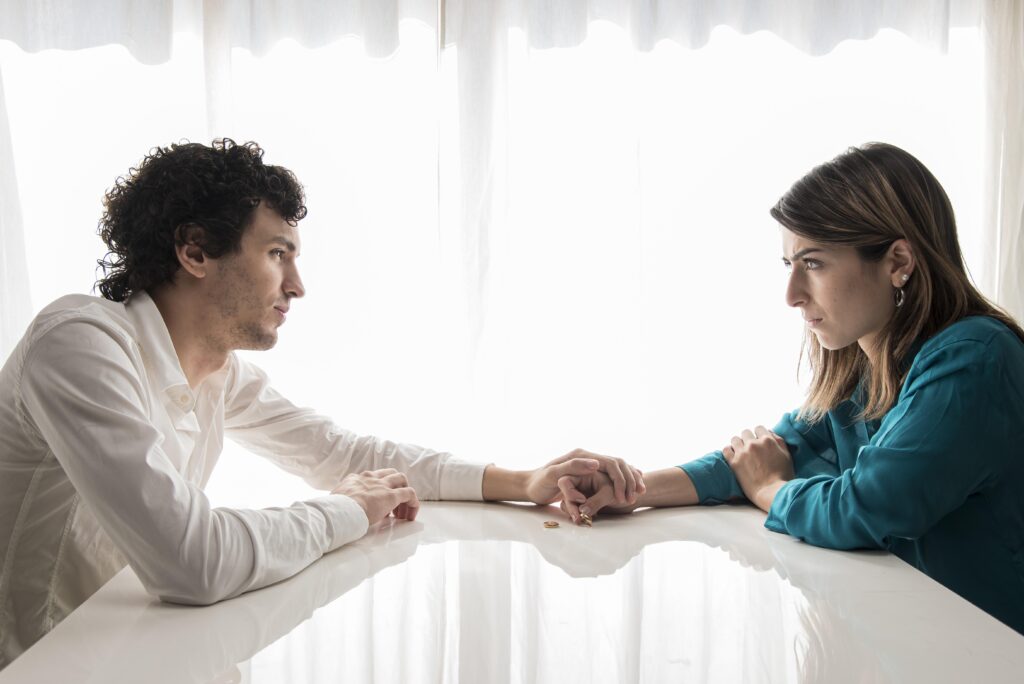
Divorce can be one of the most emotionally difficult life events an individual or family experiences. Whether the separation is amicable or filled with conflict, it often brings overwhelming feelings of grief, anger, confusion, and fear. In the midst of legal paperwork, custody arrangements, and daily life changes, emotional healing is sometimes overlooked. That’s where divorce counseling becomes a powerful and necessary tool — not only to survive the process but to emerge stronger and more self-aware.
What Is Divorce Counseling?
Divorce counseling is a form of professional support designed to help individuals or couples navigate the emotional and psychological challenges that come with ending a marriage. While lawyers and mediators handle the legal aspects, a divorce counselor helps you work through the emotional fallout. This type of counseling can take place before, during, or after a divorce — offering clarity, healing, and coping strategies tailored to your situation.
The goal isn’t to save the marriage (though in some cases, counseling starts during the decision-making phase). It’s about processing emotions, managing stress, handling communication, and rebuilding your sense of identity.
Who Needs Divorce Counseling?
Anyone experiencing emotional difficulty related to a separation or divorce can benefit from this type of therapy. You might consider divorce counseling if:
- You feel stuck in grief or anger
- You’re struggling with co-parenting or adjusting to new routines
- Communication with your ex-spouse is harmful or toxic
- You want to avoid repeating past relationship patterns
- You’re having difficulty moving forward with your life
You don’t need to be in crisis to seek help. Many people use divorce counseling as a way to gain tools, insight, and emotional support through a significant transition.
Emotional Challenges During Divorce
Divorce is not just the end of a legal union — it’s the unraveling of shared memories, routines, identity, and often a dream for the future. Divorce counseling can help address:
1. Grief and Loss
Even if you were the one who initiated the divorce, it’s normal to mourn the loss of the relationship and the life you once imagined. Counselors can help you work through the stages of grief in a healthy, empowering way.
2. Anger and Resentment
Holding onto anger can be emotionally draining and can interfere with parenting, friendships, and your own peace. Therapy can help you express and process those feelings without letting them consume you.
3. Self-Esteem and Identity Crisis
Divorce often impacts how you view yourself — especially if your identity was tied closely to the role of a spouse. Counseling can support you in rediscovering your independence, self-worth, and confidence.
4. Fear of the Future
The uncertainty that comes with divorce is one of the most overwhelming aspects. Questions about finances, dating, or being alone are common. Divorce counseling helps you reframe those fears into opportunities for growth and stability.
The Role of Divorce Counseling in Co-Parenting
For parents, divorce doesn’t mean the end of a relationship with your former partner — it transforms it. Co-parenting introduces its own set of emotional, logistical, and communication challenges. A qualified therapist can help both parents:
- Set clear boundaries
- Learn respectful communication techniques
- Focus on the best interest of the children
- Create a consistent and peaceful co-parenting plan
Children thrive on stability and predictability. When parents engage in divorce counseling, they are better equipped to create a calm and secure environment for their children, even across two households.
Types of Divorce Counseling
There’s no one-size-fits-all approach when it comes to divorce counseling. Different formats are designed to meet people at different stages of the divorce journey:
Individual Counseling
Perfect for processing personal emotions, self-reflection, and setting new life goals. It’s a safe space to explore your thoughts and heal at your own pace.
Couples Counseling (Pre- or Mid-Divorce)
Some couples choose counseling to make the separation process more peaceful and respectful. It’s not always about reconciliation — it’s often about closure.
Post-Divorce Counseling
This supports individuals who feel stuck emotionally or want to work through dating anxiety, blended family dynamics, or rebuilding self-worth.
Family Counseling
Children and teens can also benefit from therapy during this transitional period. Family counseling helps maintain healthy parent-child communication and supports emotional well-being for all members.
Benefits of Divorce Counseling
- Emotional Clarity – Understand and manage your emotions in healthy ways.
- Improved Communication – Especially helpful if children or shared responsibilities are involved.
- Decision-Making Support – Make confident, values-aligned decisions rather than emotionally reactive ones.
- Personal Growth – Identify old relationship patterns and create space for self-development.
- Faster Healing – Avoid the long-term effects of unresolved pain like depression, anxiety, or resentment.
What to Expect in a Divorce Counseling Session
Your first session will likely focus on where you are emotionally and what goals you have for therapy. You may talk about your history, what led to the divorce, and the biggest challenges you’re facing.
Over time, sessions may include:
- Guided emotional processing
- Stress reduction techniques
- Conflict resolution skills
- Goal setting and boundary work
- Visualization and mindset shifts
Each counselor has their own approach, but the process is always personalized to your needs and emotional pace.
Choosing the Right Divorce Counselor
Finding the right therapist is key to successful counseling. Look for someone with:
- A license in marriage and family therapy, counseling, or psychology
- Experience in divorce, separation, or family transitions
- A communication style that makes you feel safe and understood
- Availability that fits your schedule
Many therapists now offer online sessions, which can make access easier and more private.
Final Thoughts
Divorce can feel like the closing of a major chapter—but it can also be the beginning of a new, more empowered one. With the guidance of divorce counseling, you can turn this time of upheaval into an opportunity for reflection, healing, and personal transformation.
Seeking support is not a sign of weakness. It’s a brave and healthy step toward building the life you truly want—on your own terms. Whether you’re struggling to make sense of the present or are simply ready to stop carrying the emotional weight of the past, divorce counseling offers the tools and space you need to move forward with clarity and courage.







